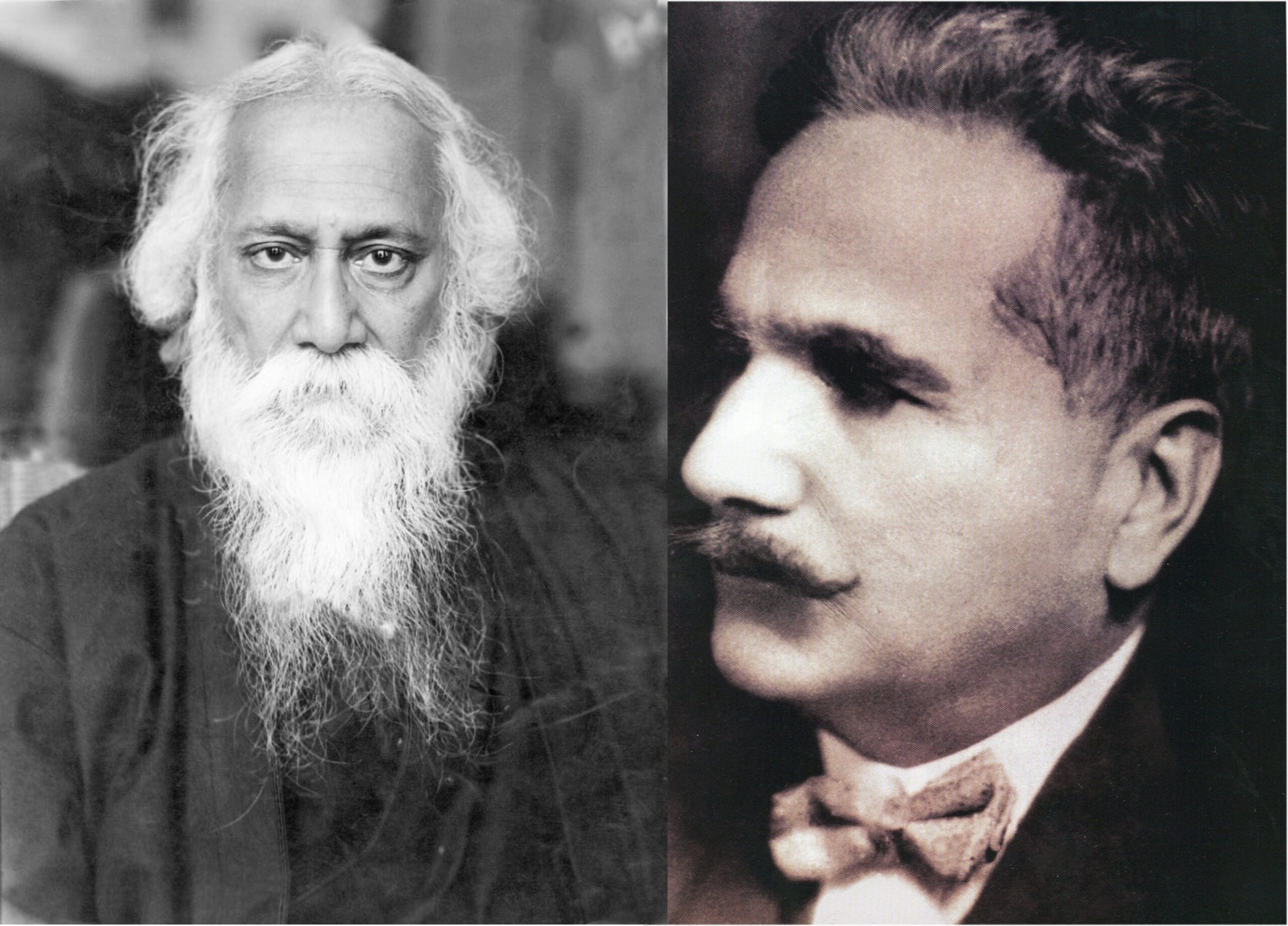Decoding Munir’s Outbursts: It All Leads Back To Iqbal’s Ideology
- By : Dr Anirban Ganguly
- Category : Articles

Mohammed Iqbal, often hailed as the ideological founder of Pakistan, laid the groundwork for its politics of division. Asim Munir’s rhetoric today is a continuation of that legacy.
The leader of Pakistan’s mercenary force, Asim Munir, delivered a series of rants in April—almost literally on the eve of the Pakistan-backed terror attack in Pahalgam—that exposed the country’s repeated and desperate attempts to remain afloat and relevant. Rapidly sliding into the category of an extreme rogue state, Pakistan needed such a misadventure to justify its existence. Munir’s outbursts reflect the very essence of Pakistan: a false state built on a fraudulent ideology that fuels its anti-human politics and calculatedly savage, almost animalistic behaviour.
At the BRICS Summit in Goa in 2016, Prime Minister Narendra Modi, without mincing words, aptly and presciently described Pakistan as the “mother-ship of terrorism.” Those countries and entities that have shown sympathy towards Pakistan must now realise that this “mother-ship of terrorism” can easily come and dock on their shores as well. No one can be safe until the “mother-ship” itself sinks.
Let us briefly delve into the diabolic mindset that drives the Pakistani deep state. Asim Munir is merely a part—an ephemeral bubble—in the long, festering stream of diabolism that has oozed from the architects of Pakistan’s deep state. From Jinnah’s “Direct Action” to Zulfikar Bhutto’s infamous and irrational call for waging a thousand-year war against India, to Zia-ul-Haq’s efforts in laying the deeper foundations of Pakistan as a radical rogue state with Islamism as its lifeblood—the pattern is consistent. Add to this the Yahya Khan-led Pakistan Army’s genocide in East Pakistan, the mass killings of students and Bengali intellectuals, the elimination of minorities in the region, and the deliberate withholding of relief in the aftermath of Cyclone Bhola in 1970, which killed 600,000 people in one night. All are manifestations of a deep-seated, diabolical obsession with shaping Pakistan into the new epicentre of terror and radicalism.
This mindset shaped the very demand for Pakistan, as conceived by its political and intellectual proponents. Munir and the Pakistani deep state have relentlessly tried to keep those ideological props well-oiled and broadcasted in order to keep themselves alive and kicking.
Two interesting episodes from history are relevant here for our discussion. In a rare meeting with Sri Aurobindo in July 1950, thinker, polymath, and leader K.M. Munshi (1887–1971), then Union Minister for Agriculture, recounted a striking remark made by the Sage on Pakistan. Recognising Munshi as his former student from Baroda, Sri Aurobindo granted him a special darshan and audience, during which they discussed both personal and national matters at length. Munshi records Sri Aurobindo as saying that “Pakistan has been created by falsehood, fraud and force” and that “it must be brought under India’s military ambit.” That very triad—falsehood, fraud, and force—remains the foundation of Pakistan, and this is becoming increasingly evident.
The effects of Prime Minister Modi’s deft, far-sighted, and sustained diplomatic outreach over the past decade are also becoming clear. Except for a few near-failing and anti-democratic states, no country is commiserating with Pakistan or falling for its false propaganda of victimhood.
The other interesting anecdote from history is of the poet-laureate of Pakistan, Mohammed Iqbal (1877-1938). It bears reiteration now, in order to expose the minds and mindset which pushed for the creation of Pakistan. One of Rabindranath Tagore’s foremost biographers, Prabhat Kumar Mukhopadhyay (1892–1985), notes in Rabindra Jibana Katha that when Tagore arrived in Lahore on 14 February 1935 for a two-week visit, Iqbal—himself a native of Lahore—scooted from the city in order to avoid meeting Tagore. Iqbal’s conduct was hardly surprising, given that he had already begun composing the subversive hymn of Pakistan. Why else would a poet decline the opportunity to meet Tagore, who by then had attained iconic status and symbolised national unity and cultural nationalism?
Tagore’s two-week stay in Lahore was nonetheless significant, particularly for his meetings with Sikh community leaders, who received him with great honour and appreciation.
In 1935, at the time of Gurudev Tagore’s visit to Lahore, Iqbal was already well into articulating his demand for a separate Muslim state. Historian Bimal Prasad notes that, in his presidential address at the twenty-first session of the Muslim League in Allahabad in December 1930, Iqbal spoke of concentrating the bulk of Indian Muslims in “one specified territory.” This, Prasad writes, “contributed significantly to the evolution of the thought-process which finally culminated” in the demand for Partition.
In a letter to Jinnah in June 1937, Iqbal asserted that the “Muslims of north and north-west India, where they were in a majority, must have their own State, on the basis of the principle of self-determination.” In his foreword to the booklet Iqbal to Jinnah, which compiled Iqbal’s letters, Jinnah acknowledged that “his views were substantially in consonance with my own and had finally led me to the same conclusions… and found expression in due course” in “the Lahore Resolution of the All-India Muslim League, popularly known as the ‘Pakistan Resolution’.” Prasad argues that Iqbal’s 1930 address “strongly underlined some of the basic points which were later used as the main ideological props of Pakistan.”
By 1937, an ideologically possessed and driven Iqbal—having shifted focus away from his sublime poetry—wrote to Jinnah, “I tell you that we are actually living in a state of civil war which, but for the police and military, would become universal in no time…” He also asserted that the “idea of a single Indian federation is completely hopeless.”
Reporting a conversation he had with Jinnah around the same time, Lord Brabourne, then Governor of Bombay, recorded that Jinnah’s policy was to “preach Communalism morning, noon and night…”
While PM Modi’s vision of a “New India” and of “Viksit Bharat” is powered and driven by the vision, legacy and philosophy of the likes of India’s poet laureate, Gurudev Rabindranath Tagore, and is based on his vision of unity and self-reliance, the dark and failing nightmare that is Pakistan continues to be shaped by its poet laureate, Iqbal, who spoke of division, separation, conflict and despair.
Iqbal never articulated any substantial or enduring civilisational vision. Unlike Tagore, he failed to influence or shape global thought in any meaningful way. While Tagore is celebrated across the world, his relevance only growing with time, Iqbal remains entombed—trapped in a decaying sepulchre of his own making. That sepulchre continues to incubate and unleash anti-civilisational ideas and forces. The lies peddled by Asim Munir, like those of his predecessors, are churned out from that very death-bound vault.
Alongside the physical resistance and response to the wraith-state of Pakistan, which must continue unabated, the battle of the mind and of ideas against its founding ideology must also persist with equal resolve—until that dark, nether, and nefarious sepulchre is permanently decimated.
















